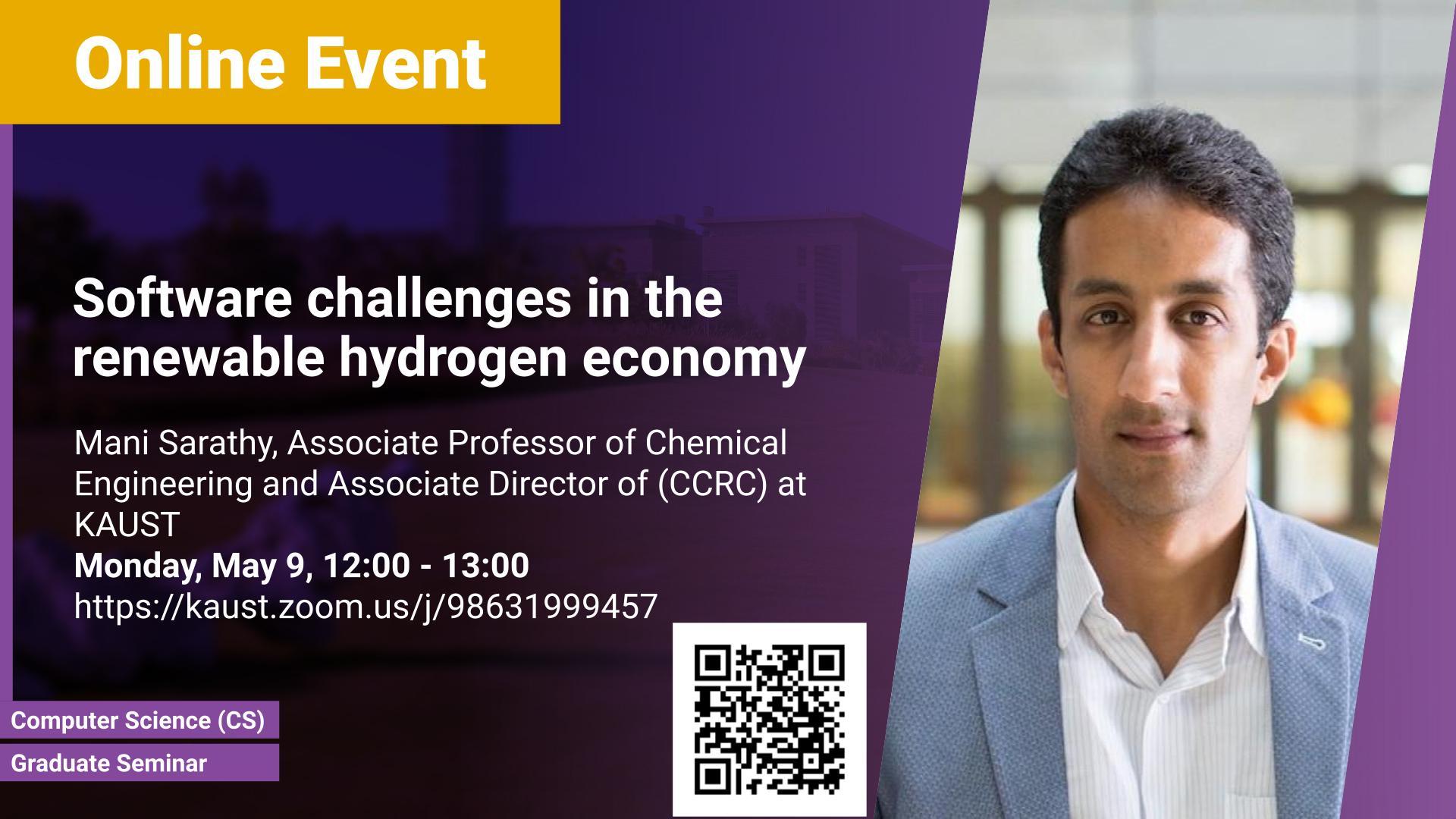Abstract
Hydrogen is a carbon-free energy carrier that can be used to decarbonize various high-emitting sectors, such as transportation, power generation, and industry. Today, global hydrogen production is largely derived from fossil fuels such as natural gas and coal. In order to decarbonize economies, hydrogen needs to be produced from renewable resources, such as via the electrolysis of water with renewable energy. The production of renewable hydrogen faces many technical challenges to achieve low costs and large scale. Amongst these, computer science challenges related to renewable energy production, storage, distribution, and use in water electrolysis need attention. In addition, physics-based modeling and data-science driven approaches for optimizing the hydrogen economy are needed. This presentation will identify the software challenges and opportunites in building a renewable hydrogen economy.
Brief Biography
Mani is currently Senior Manager of Technology and Innovation at NEOM Hydrogen and Green Fuels. He is also Associate Professor of Chemical Engineering and Associate Director of the Clean Combustion Research Center (CCRC) at KAUST. He received his Ph.D. and M.A.Sc. degrees in Environmental and Chemical Engineering at the University of Toronto and B.A.Sc. in Environmental Engineering Chemical Specialization from the University of Waterloo. He was named a Clarivate Analytics Highly Cited Researcher three times in the field of Engineering His research interest is in developing sustainable energy technologies with decreased net environmental impact. A major thrust of his research is using simulations to design fuels, engines, and reactors.

